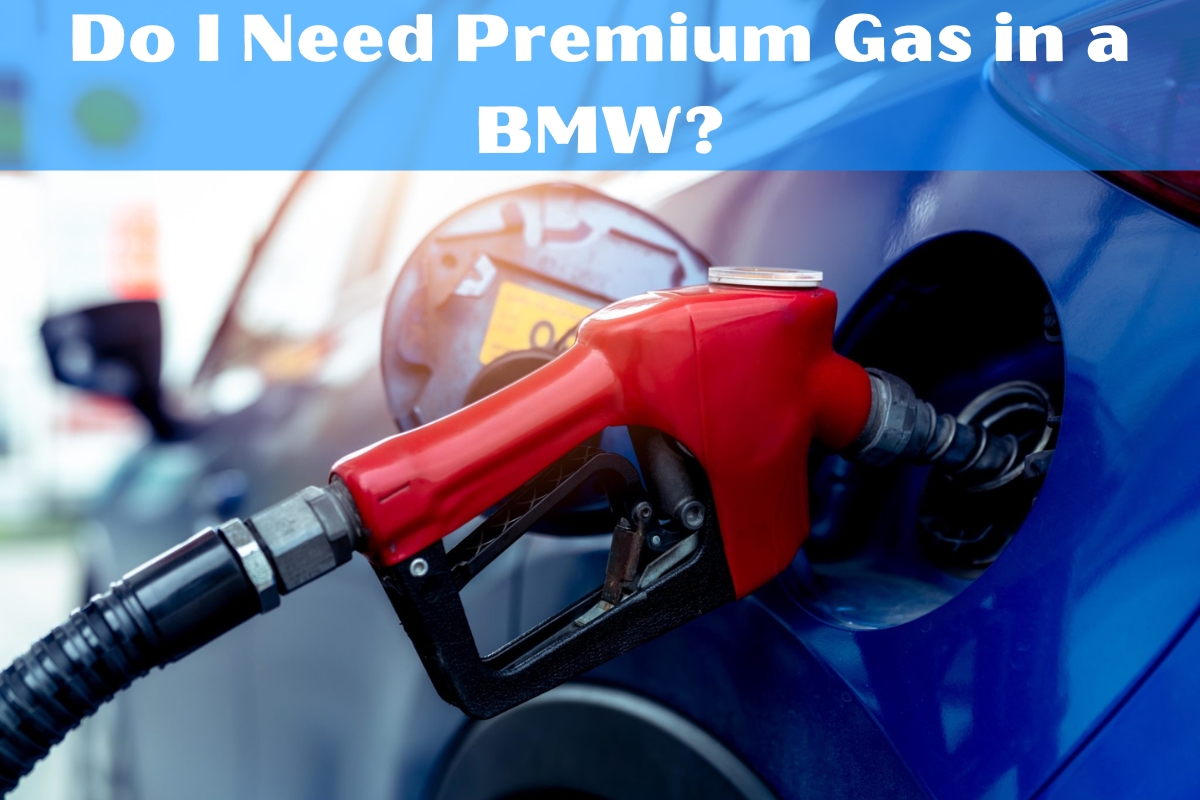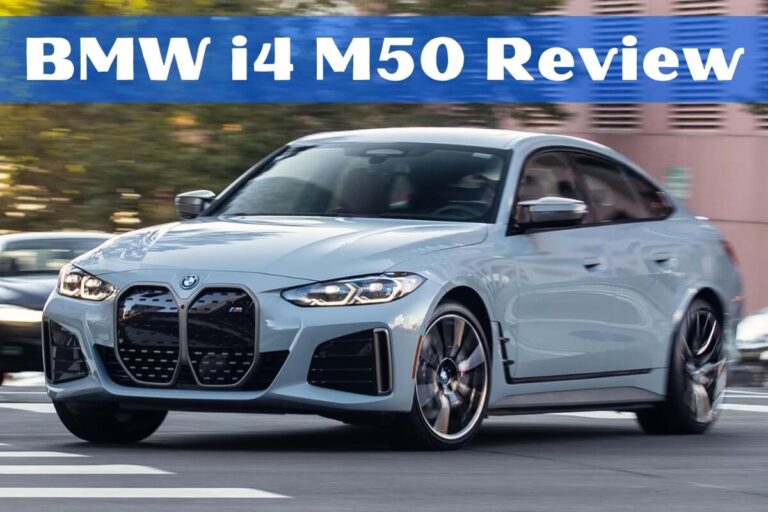Do I Need Premium Gas in a BMW?

The short answer is yes, BMWs generally require premium gasoline (91 octane or higher) for optimal performance and to prevent engine damage. While you can technically use regular gas in some BMW models, it’s not recommended as it can lead to decreased power, reduced fuel efficiency, and potentially long-term issues with your engine. In this comprehensive guide, we’ll dive into the details of why BMWs need premium fuel, what happens if you use regular gas, and which BMW models specifically require the higher octane rating.
What’s the Difference Between Regular and Premium Gas?
The main difference between regular and premium gasoline lies in the octane rating. Regular gas typically has an octane rating of 87, while premium gas ranges from 91 to 93 octane. The octane rating measures a fuel’s resistance to premature ignition, also known as “knocking” or “pinging.”
Engines with higher compression ratios, like those found in many BMWs, need fuel with a higher octane rating to prevent this knocking. Regular gas is more prone to prematurely igniting under the high pressure and heat inside the engine’s cylinders, which can cause that telltale knocking sound and potentially damage the engine over time.
Premium fuel, on the other hand, is more stable and can withstand the increased pressure and temperature without prematurely detonating. This allows the engine to operate more efficiently and safely, delivering better performance and fuel economy.
Why Do BMWs Require Premium Gas?
BMWs are designed and engineered to deliver a thrilling, high-performance driving experience. Many BMW models, especially those with turbocharged or high-compression engines, require premium gasoline to function as intended.
Here are the main reasons why BMWs need premium fuel:
Higher Compression Engines
Many BMW engines, including the popular turbo-four and turbo-six models, have high compression ratios. This allows them to extract more power from the fuel, but it also means they are more sensitive to lower-octane regular gas. Using regular fuel in a high-compression BMW engine can cause knocking and pre-ignition, which can ultimately lead to engine damage over time.
Turbochargers
BMWs are known for their powerful, turbocharged engines. Turbochargers increase an engine’s efficiency by force-feeding it more air, but they also create higher pressures and temperatures within the cylinders. Premium fuel is necessary to withstand these extreme conditions without premature detonation.
Engine Tuning
BMW engineers tune their engines to take full advantage of premium fuel’s higher octane rating. The engine management system is calibrated to provide optimal ignition timing, fuel delivery, and other parameters when premium gas is used. Using regular gas can result in a noticeable drop in power and acceleration.
Fuel Injector and Valve Deposits
Premium fuels often contain better detergent additives compared to regular gas. These additives help keep fuel injectors and intake valves clean, which maintains optimal fuel atomization and airflow. Over time, using lower-quality regular gas can lead to increased deposits and reduce engine performance.
What Happens If You Put Regular Gas in a BMW?
While you can technically use regular gas in a BMW, it’s not recommended and can lead to several problems:
Decreased Performance
One of the most noticeable effects of using regular gas in a BMW is a decrease in engine performance. The engine management system will adjust the ignition timing and fuel delivery to prevent knocking, which results in less power and acceleration. You may notice your BMW feeling sluggish or underpowered.
Reduced Fuel Efficiency
The engine tuning changes required to accommodate regular gas can also negatively impact fuel economy. You may see a drop in miles per gallon, essentially negating any potential savings from using the cheaper fuel.
Engine Knocking and Pinging
As mentioned earlier, the lower octane rating of regular gas makes it more prone to premature ignition, leading to knocking and pinging noises from the engine. While the engine management system tries to compensate, this can still cause damage over time.
Long-Term Engine Damage
Persistent use of regular gas in a high-performance BMW engine can lead to more serious issues, such as accelerated wear on engine components like pistons, rings, and bearings. This can ultimately result in costly repairs down the line.
Which BMW Models Require Premium Gas?
The vast majority of BMW models, from the entry-level 3 Series to the high-performance M cars, recommend or require the use of premium gasoline (91 octane or higher). Here are some specific examples:
BMW 3 Series, 5 Series, 7 Series
These popular BMW sedan models all recommend the use of premium fuel, with the exception of some base-model 3 Series variants that can run on regular gas. However, BMW still advises using premium for best performance and fuel economy.
BMW X3, X5, X7 SAVs
BMW’s lineup of Sports Activity Vehicles (SAVs) also require premium gasoline, as they are equipped with turbocharged engines that benefit from the higher octane rating.
BMW M Models
The high-performance BMW M models, such as the M3, M4, M5, and M8, absolutely require premium fuel. Their powerful, high-compression engines are specifically tuned for the increased octane and will experience a significant drop in power and efficiency if lower-grade gas is used.
It’s important to note that BMW’s recommendations can vary slightly between model years and specific trim levels, so always check your owner’s manual or with your local BMW dealer to ensure you’re using the correct fuel for your vehicle.
Can You Use Mid-Grade Gas in a BMW?
While premium fuel is the recommended and required choice for most BMWs, some owners may wonder if mid-grade gas (88-90 octane) could be a compromise. The short answer is that it’s generally not recommended.
Mid-grade gas still has a higher octane rating than regular, which can help mitigate some of the performance and efficiency losses. However, it’s still not the optimal fuel for BMW’s high-performance engines. You may see a small improvement over regular gas, but you won’t be getting the full benefits that premium fuel provides.
Additionally, using mid-grade gas regularly can still lead to increased engine wear and deposits over time, as the detergent and combustion properties aren’t as refined as premium fuel. For the best long-term care of your BMW, it’s advisable to stick with the manufacturer’s recommendation of premium gasoline.
Tips for Using Premium Fuel in Your BMW
Now that we’ve established the importance of premium gas for BMWs, here are some tips to ensure you’re getting the most out of your fuel:
- Always Use 91 Octane or Higher: Never fill up your BMW with regular (87 octane) gas, as this can cause engine damage. Stick to 91 octane or higher, as recommended by BMW.
- Consider Top-Tier Detergent Gasoline: Look for “Top Tier” gasoline brands that meet stricter detergent standards. These fuels can help keep your engine’s fuel system clean and running efficiently.
- Fill Up When the Tank is Low: Try to avoid letting your BMW’s fuel tank get too low before refilling. This reduces the chance of any water or debris in the tank getting sucked into the engine.
- Keep Up with Maintenance: Regular servicing, including fuel filter changes, can help ensure your BMW’s fuel system is operating at its best and prevent any issues from low-quality gas.
- Don’t Mix Fuel Grades: If you accidentally put in some regular gas, don’t try to “top it off” with premium. This can lead to an improper fuel mixture. It’s better to fully drain the tank and refill with premium.
By following these tips and always using the recommended premium fuel, you can help ensure your BMW delivers the performance, efficiency, and longevity it was designed for.
Conclusion
In conclusion, the answer is clear – BMWs do require premium gasoline (91 octane or higher) for optimal performance and to prevent potential engine damage. While you can technically use regular gas in some BMW models, it’s simply not worth the risk of decreased power, fuel economy, and long-term reliability issues.
By understanding the importance of premium fuel for BMWs and following the manufacturer’s recommendations, you can enjoy the full capabilities of your ultimate driving machine and keep it running at its best for years to come. Remember to always check your owner’s manual and consult with your local BMW dealer if you have any further questions about the right fuel for your specific model.






